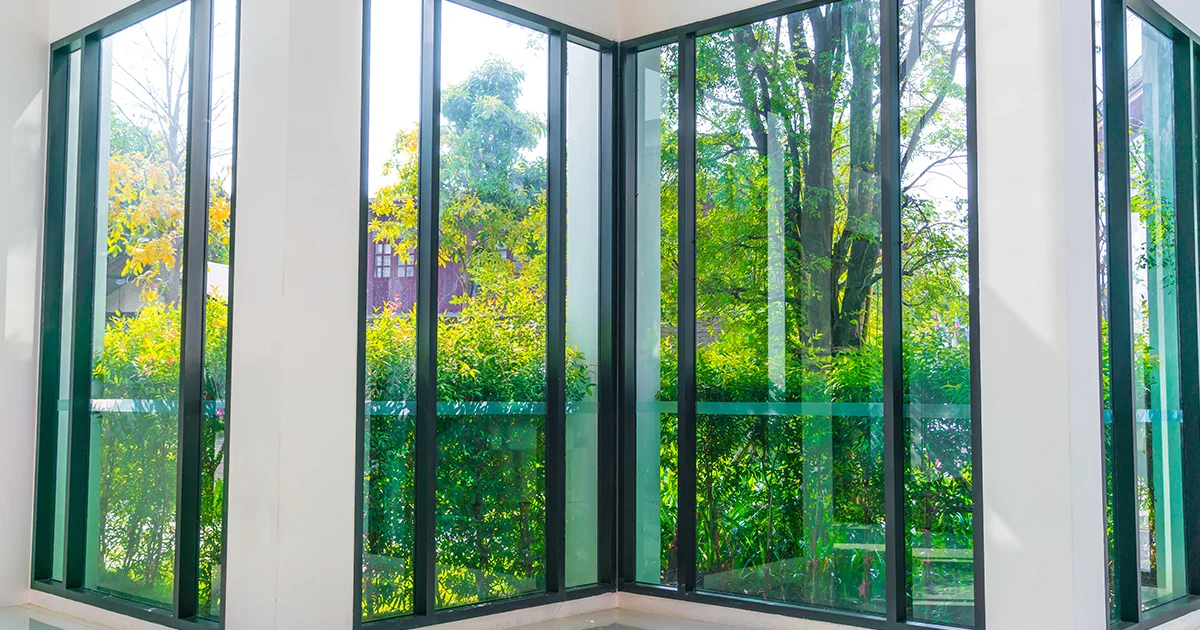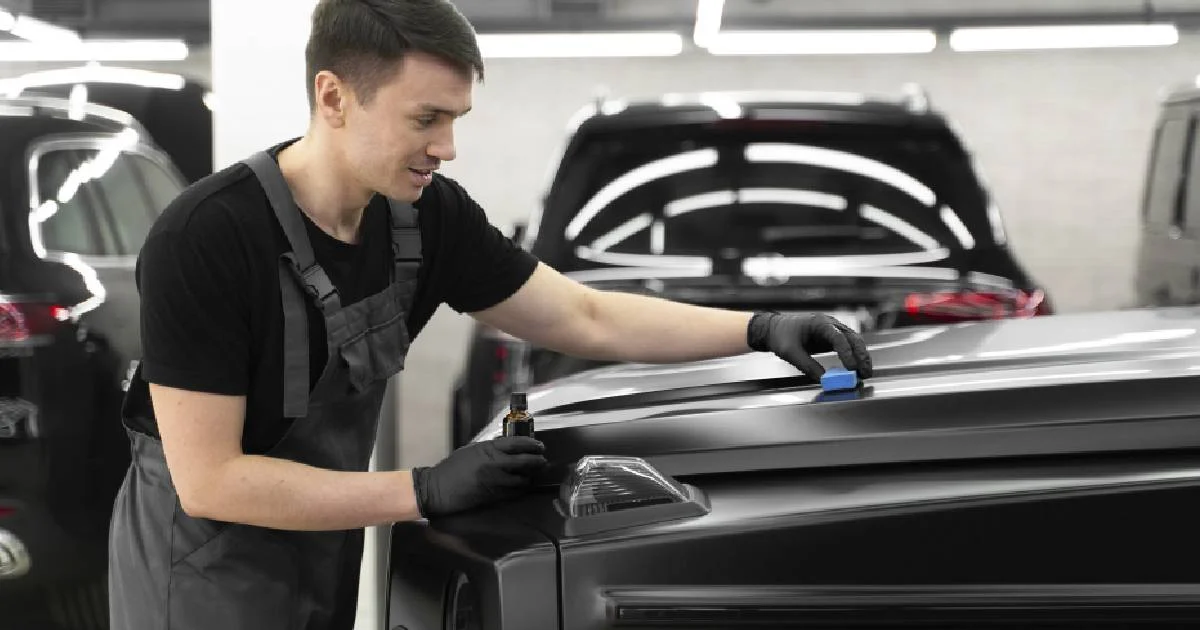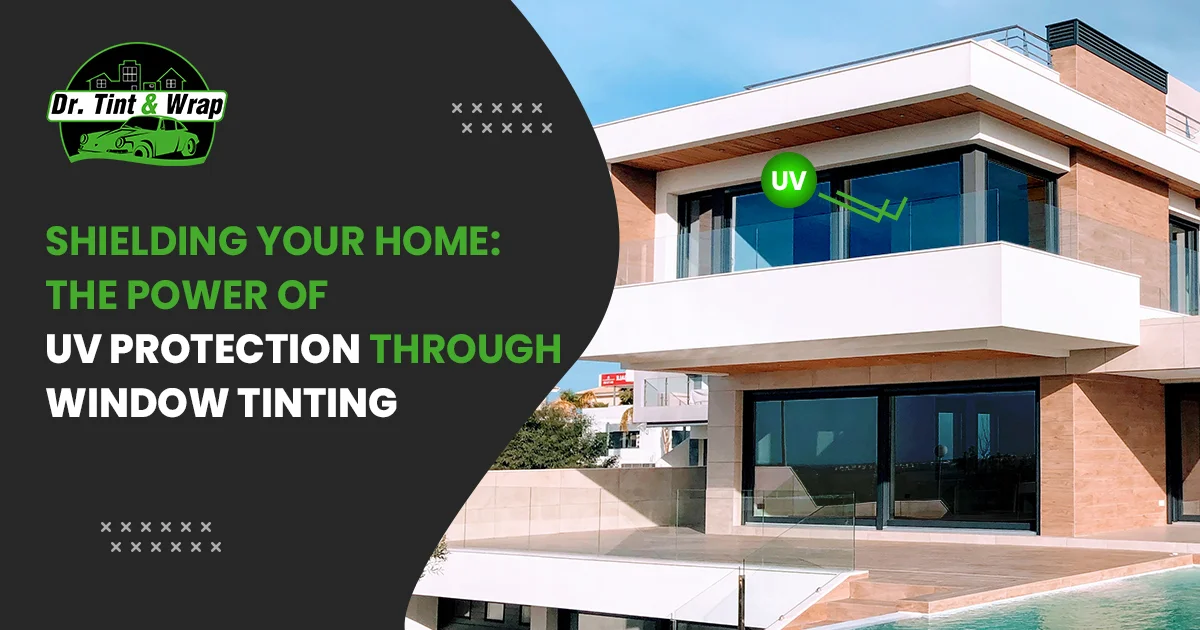
How to Choose the Right Window Tint for Your Home in 2023
23 Oct 2023, By AdminIn the world of home improvement, one often overlooked but highly beneficial upgrade is home window tinting. As we step into 2023, the demand for window tinting solutions has grown significantly, driven by increased awareness of their advantages. Whether you're looking to enhance privacy, reduce energy costs, or protect your furnishings from harmful UV rays, choosing the right window tint for your home is crucial. In this guide, we'll explore the key factors to consider when selecting the perfect window tint for your home in 2023.
1. Identify Your Goals
Before diving into the world of window tinting, it's essential to determine your specific goals. Why do you want window tinting for your home? Common reasons include:
- Privacy: Do you want to prevent prying eyes from peering into your living spaces?
- Energy Efficiency: Are you looking to reduce your energy bills by blocking out heat in the summer and retaining warmth in the winter?
- UV Protection: Do you want to safeguard your furniture, flooring, and artwork from harmful UV rays that can cause fading?
- Glare Reduction: Is glare from the sun or nearby buildings affecting your comfort while working or relaxing indoors?
Knowing your objectives will help you choose the right type of window tint to fulfill your needs.
2. Understand Different Types of Window Tints
In 2023, there are various types of window tints available, each with its unique features and benefits. Some of the most common options include:
- Solar Control Films: These tints are designed to reduce heat and glare, making your home more comfortable and energy-efficient. They can also block a significant portion of harmful UV rays.
- Privacy Films: These tints provide enhanced privacy during the day while allowing you to see out. They are perfect for homes with large windows or those in close proximity to neighbors.
- Decorative Films: If you want to add a touch of style to your windows, decorative films come in various patterns and designs. They can provide privacy and aesthetics simultaneously.
- Security Films: These films are designed to strengthen windows and make them more resistant to break-ins and accidents. They can be a valuable addition to your home's security system.
- UV-Blocking Films: If preserving the color and integrity of your furnishings is a priority, UV-blocking films are an excellent choice. They significantly reduce the harmful effects of UV rays on your interior decor.
3. Consider Local Regulations
Before you proceed with window tinting, it's crucial to check your local regulations and building codes. Some areas may have restrictions on the type or darkness of window tint allowed, especially for front-facing windows. Compliance with local laws ensures you avoid potential fines or complications.
4. Evaluate Tint Performance
When choosing a window tint, pay attention to its performance metrics, including:
- Visible Light Transmission (VLT): This measures the amount of visible light that can pass through the tint. A lower VLT means less light passes through, which can be helpful for glare reduction and privacy.
- Solar Heat Gain Coefficient (SHGC): This metric indicates how much heat the tint can block. Lower SHGC values are better for reducing heat gain during hot months.
- U-Factor: This measures how well the tint insulates your windows. A lower U-factor indicates better insulation, which is crucial for energy efficiency.
5. Seek Professional Installation
While some homeowners may attempt DIY window tinting, it's usually recommended to hire professionals. They have the expertise and equipment to ensure a proper installation that maximizes the benefits of your chosen tint.
6. Request Samples and Consultations
Before making your final decision, request samples of the window tints you're considering. This will allow you to see how they look in your home's lighting conditions and how well they meet your objectives. Additionally, consult with window tinting experts who can provide advice tailored to your specific needs.
In conclusion, home window tinting in 2023 is a versatile and practical solution for enhancing comfort, privacy, and energy efficiency in your home. By understanding your goals, exploring different types of tints, and considering local regulations, you can make an informed choice that brings both aesthetic and functional benefits to your living space. With professional installation and careful consideration, you'll enjoy the advantages of window tinting for years to come.

Exploring Different Types of Ceramic Coatings Available in Hamilton
23 Oct 2023, By AdminCeramic coatings have become a popular choice for car enthusiasts, homeowners, and industrial applications in Hamilton, Ontario. These coatings offer a wide range of benefits, including enhanced durability, heat resistance, and a sleek appearance. Whether you're looking to protect your vehicle's paint, enhance the aesthetics of your home, or improve the functionality of industrial equipment, there are various types of ceramic coatings available in Hamilton to suit your needs. In this blog, we'll explore some of the different types of ceramic coatings and their applications in the Hamilton area.
What Are the Different Types Of Ceramic Coatings?
Automotive Ceramic Coatings:
Nano ceramic coatings are incredibly thin, transparent layers that bond with the paint of your vehicle. They offer exceptional protection against UV rays, acid rain, and environmental contaminants. These coatings are ideal for car enthusiasts in Hamilton who want to keep their vehicles looking pristine.
SiO2 coatings are known for their hydrophobic properties, which make them excellent for repelling water, dirt, and debris. They create a glossy finish and provide long-lasting protection against various elements.
- Nano Ceramic Coatings:
- SiO2 (Silicon Dioxide) Coatings:
- Graphene Coatings:
Graphene coatings are a relatively new addition to the ceramic coating family. They are exceptionally durable and known for their high heat resistance. These coatings are suitable for those who demand the best protection for their vehicles, especially in Hamilton's varied weather conditions.
Benefits of Ceramic Coating in Hamilton
Ceramic coatings create a durable and protective layer on the vehicle's paint surface. This layer acts as a shield against various environmental contaminants, such as dirt, dust, road salt, bird droppings, tree sap, and UV rays. In Hamilton, where winter weather and road salt can be particularly harsh on vehicles, ceramic coatings can help prevent damage and corrosion.
Ceramic coatings provide a long-lasting, high-gloss finish to your vehicle. This shine not only makes your car look impressive but also stays intact for an extended period, reducing the need for frequent waxing and polishing.
Ceramic coatings make it easier to clean your car. Their hydrophobic properties repel water and prevent contaminants from sticking to the surface, making it less likely for dirt and grime to accumulate. This makes washing and maintaining your car in Hamilton more convenient.
- Enhanced Paint Protection:
- Long-Lasting Shine:
- Easy Maintenance:
- Resistance to Chemicals:
Ceramic coatings are resistant to many chemicals, including harsh cleaning agents and road salts. This resistance helps protect your car's paint from the corrosive effects of chemicals and can be particularly beneficial in areas with extreme weather conditions, like Hamilton.
Residential Ceramic Coatings:
Hamilton's climate can be tough on the exterior of homes. Ceramic coatings can be applied to the exterior walls to protect them from harsh weather conditions and pollutants. They also add a glossy finish, giving your home an attractive and clean look.
Ceramic roof coatings are designed to extend the life of your roof by providing a protective barrier against moisture, UV rays, and temperature fluctuations. In a city like Hamilton, where weather can be unpredictable, this is a valuable investment.
- Exterior House Coatings:
- Roof Coatings:
- Window and Glass Coatings:
Window and glass coatings enhance energy efficiency, reduce heat buildup, and make cleaning easier. Hamilton residents can benefit from these coatings by reducing energy costs and making their homes more comfortable.
Industrial Ceramic Coatings:
Industries in Hamilton dealing with high-temperature equipment such as engines, exhaust systems, and industrial machinery can benefit from high-temperature ceramic coatings. These coatings provide thermal insulation and corrosion resistance, prolonging the life of equipment.
Industries that face exposure to chemicals and corrosive environments often use ceramic coatings to protect their assets. These coatings offer a durable and long-lasting solution to prevent corrosion.
- High-Temperature Ceramic Coatings:
- Anti-Corrosion Coatings:
- Wear-Resistant Coatings:
Manufacturing and heavy machinery industries in Hamilton require coatings that can withstand the wear and tear of daily operations. Wear-resistant ceramic coatings are designed to do just that, extending the life of industrial equipment.
In Hamilton, the wide variety of ceramic coatings available cater to the specific needs of the automotive, residential, and industrial sectors. These coatings not only protect surfaces but also improve their aesthetic appeal, making them a valuable investment. Before choosing a ceramic coating, it's essential to consider your specific requirements and consult with professionals who can recommend the most suitable option for your needs.
Whether you want to preserve the pristine appearance of your car, protect your home from Hamilton's ever-changing weather, or enhance the durability of industrial equipment, ceramic coatings offer a versatile and effective solution for residents and businesses in Hamilton. When applied correctly, these coatings provide long-lasting protection and aesthetic benefits, making them a worthwhile investment for those looking to maintain the quality and appearance of their possessions.

Shielding Your Home: The Power of UV Protection Through Window Tinting
23 Oct 2023, By AdminIn the pursuit of creating a cozy and inviting home, we often invest in exquisite furniture, delicate fabrics, and beautiful artwork. However, while we bask in the warmth of sunlight filtering through our windows, we might unknowingly subject our prized possessions to potential harm. Ultraviolet (UV) rays, invisible but potent, can cause irreparable damage to our furniture, flooring, and other cherished items. Fortunately, there's a simple yet effective solution – window tinting. In this blog, we'll explore the significance of UV protection through window tinting and how it preserves the integrity of your home.
Understanding the Threat: UV Rays
UV rays, a component of natural sunlight, are notorious for their ability to fade and deteriorate materials over time. Wood, fabric, leather, and even artwork are vulnerable to the harmful effects of prolonged exposure. Traditional windows offer little defense, allowing these rays to penetrate and wreak havoc on your interiors. This is where window tinting steps in as a guardian, forming an invisible shield against these damaging rays.
The Role of Window Tinting: A Protective Barrier
- Preventing Fading: One of the primary benefits of window tinting is its capacity to reduce fading. Tinted windows block a significant portion of UV rays, ensuring that your furniture and flooring retain their vibrant colors and textures for a more extended period. Say goodbye to the washed-out hues and say hello to long-lasting elegance.
- Preserving Fabrics and Upholstery: Fabrics, especially those found in curtains, upholstery, and rugs, are highly susceptible to UV damage. Window tinting safeguards these textiles, prolonging their lifespan and maintaining their luxurious appeal. Your curtains will stay rich and your upholstery will remain plush, all thanks to the protective tint.
- Safeguarding Art and Valuables: Artwork and valuable items, such as antique furniture or delicate ornaments, deserve special care. Window tinting acts as a shield, allowing you to display your treasures without fear of deterioration. Your art collection will stay vivid, and your valuables will maintain their allure, enhancing your home's aesthetics for years to come.
The Added Benefits: Beyond UV Protection
- Energy Efficiency: Window tinting not only protects against UV rays but also improves your home's energy efficiency. By blocking excessive heat during summers and retaining warmth in winters, tinted windows contribute to a more comfortable living environment and reduced energy bills.
- Enhanced Privacy and Security: Tinted windows offer enhanced privacy, making it difficult for prying eyes to peer inside. Additionally, they reinforce your home security, acting as a deterrent against potential intruders.
Conclusion
A Brighter, Safer Tomorrow In the battle against the invisible menace of UV rays, window tinting emerges as a reliable ally. By investing in quality window films, you not only protect your furniture, flooring, and cherished possessions but also create a more energy-efficient, secure, and private home. Embrace the transformative power of window tinting, and let your home shine brightly while staying shielded from harm. Remember, a small step today can lead to a brighter, safer tomorrow for your home and everything within it.

Automotive Vinyl Wrap Service Near Me
23 Oct 2023, By AdminTransform your car with Tint a Car – New Zealand’s most trusted name in vinyl wraps and tinting, with over 50 years of experience. We offer professional installations and exclusive products backed by a lifetime nationwide warranty on most films, plus a 30-day money-back guarantee.
What is vinyl car wrapping?
Vinyl car wrapping involves covering your car with high-quality vinyl film, available in a variety of colors, textures, and custom designs. This gives your car a fresh, unique look while also protecting the original paint from damage caused by environmental factors like bird droppings or tree sap.
Why wrap your car?
Wrapping your car is an affordable way to refresh its look while providing a layer of protection. It’s significantly cheaper than a traditional paint job, which can cost anywhere from $1,000 to $10,000. Vinyl wraps start as low as $50 for smaller areas like side mirrors, with larger sections like the bonnet costing around $350. The final price depends on the size of your car and the amount of wrapping needed.
What parts of the car can be wrapped?
From bonnets, roofs, and boots to door handles and racing stripes – we can wrap almost any part of your car. Full wraps are also available for a complete transformation. With a lifespan of 1 to 10 years, vinyl wraps protect your car's original paint from minor chips, weathering, and natural hazards, which can help increase resale value.
Easy to Maintain
Maintaining a vinyl wrap is a breeze—no waxing is required! Just soap and water are enough to keep your car looking clean and sleek. And if you ever want a change, the wrap can be safely removed without affecting the original paint underneath.
Vinyl Wraps for Businesses
Want to promote your business on the go? Vinyl wraps are the perfect solution. Provide us with your design, and we’ll turn your vehicle into a mobile billboard.
Elevate your car’s look and protection with Tint a Car – the experts in vinyl wrapping and tinting in New Zealand.
